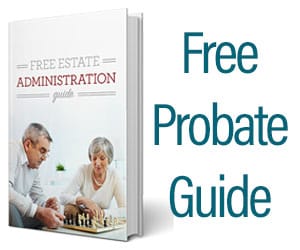Most people understand the necessity of writing a will to pass on their estate to their heirs. That is not the only choice that is available to them, though. Another tool for estate planning is the trust. Trusts are gaining in popularity, especially the revocable living trust. Not only is this a way to avoid probate, but it can offer advantages both before and after death.
To understand what a trust can do for you, you must first understand what a trust is. Traditionally, a trust is used to minimize taxes on your estate. It also offers many other benefits when used as part of an estate plan that is well-crafted. By using the fiduciary arrangement of a trust, you allow a third party (trustee) to hold your assets on your behalf. You can arrange your trust in several different ways and specify the details of it, such as when and how the assets will pass to the beneficiaries. Your beneficiaries will be able to gain access to your assets quicker than if you were to use a will because they will most likely avoid probate. Fewer taxes will be due at your death, too, if it is an irrevocable trust, because your assets will not be considered the same as your taxable estate.
Most of the time, the assets that are in a trust will reduce the estate taxes, save court fees, and save time because they pass outside of probate.
There are many other benefits to having a trust that include:
- You control your wealth. You have the power to specify all the terms of the trust and control when and how the distributions are made. It is also possible for you to set up a revocable trust that allows you to keep control of the assets while you are living then have them transfer to your beneficiaries upon your death. This especially helps in situations when you have children from more than one marriage.
- You protect your legacy. When your trust is constructed properly, it can help to protect your estate from beneficiaries who may not handle money well or from your heirs’ creditors.
- You save on probate and have privacy. When something goes to probate, it becomes a matter of public record. If your trust keeps your assets out of probate, they remain private. It will also reduce the amount of money lost to taxes and court fees.
For A Free Estate Information Guide
Types of Trusts Available
- The marital (also called an “A” trust) – This trust is designed to pass benefits to a spouse who is surviving. The assets are normally part of the surviving spouse’s taxable estate. It is funded at the time of your death with the amount that is more than the spouse’s federal estate tax exemption that is available and is eligible for the unlimited marital deduction. The surviving spouse is then able to control the final distribution of the assets in the trust at their death.
- The bypass or “B” trust – This trust is also considered a credit shelter trust. This is created to help the surviving spouse’s estate avoid as many taxes as possible by using the federal estate tax exemptions available. It is often used in combination with a martial trust.
- A testamentary trust – This trust is contained in the persons will and makes provisions for distributing the estate (or part of it), and the funds that come from the life insurance policy of the deceased. These trusts are most often set up for those with young children or with family members with disabilities.
- An irrevocable life insurance trust, or ILIT – An ILIT is a kind of trust that is irrevocable and can exclude proceeds from life insurance policies from the taxable estate of the deceased. It also provides a liquidity for the beneficiaries of the estate. When you set this type of trust up, you transfer ownership so that when you die, the proceeds are not subject to estate taxes.
- A charitable lead trust – This type of trust gives part of your benefits to a charity and the rest of it to your beneficiaries.
- A charitable remainder trust – Using this kind of trust, you will be able to get income for a certain amount of time and then send the rest to a charity.
- The generation-skipping trust – This sort of trust allows the assets to be given to grandchildren without taxes being taken out, even upon the death of your children.
- The Qualified Terminable Interest Property Trust, or QTIP – This trust is a way to provide a stream of income to the surviving spouse. After their death, the assets then flow down to the beneficiaries previously named by the deceased. This type of trust is typical to situations where there is a second marriage or to minimize future taxes.
- A Grantor Retained Annuity Trust, or GRAT – This kind of trust is typically used when someone wants to make a large financial gift to a beneficiary to family without having to pay a gift tax. This is done during the lifetime of the grantor.
Revocable and Irrevocable Trusts
There are several different types of trusts available. One of the biggest distinctions made between them is whether they are revocable or irrevocable.
Revocable Trust – a revocable trust is also called a living trust. This kind of trust allows you to keep your assets out of probate but also keep control of your assets during your lifetime. This trust is very flexible and you can dissolve it if you choose at any time. This trust, upon the grantor’s death, becomes irrevocable. With a revocable trust, you can list yourself as the trustee. This allows you to keep all control and ownership of the trust and change the terms if and when you please. It also makes provisions for another trustee at your death to manage your assets. This type of trust will usually help keep your assets out of probate, but they are usually still subjected to estate taxes. While you are living, the assets are treated the same as all your other assets.
Irrevocable Trust – a trust that is irrevocable will transfer your assets from your estate and likely from the reach of probate and estate taxes. This trust is not able to be changed by the grantor once it is put in action, though. Once the trust has been established, the grantor loses all control over the assets and is unable to dissolve the trust for any reason. If your goal is to reduce any estate taxes that may be applied to your assets, then an irrevocable trust may be what you want. You will also be relieving yourself of any tax liability from the assets in the trust generating income. Your assets will most likely be protected if there is a legal judgement brought against you as well.
Deciding Which Trust is Right for You
The best way to determine which type of trust would benefit you best is to consult your attorney. There are many state laws that vary significantly when it comes to trusts. These laws and other regulations will need to be considered before you decide which trust you want to use.
Download Free PDF Guide On The Probate Process



